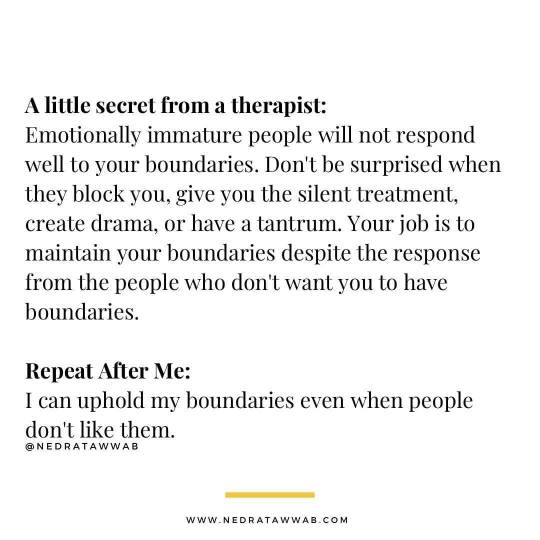Text
🎶Stuck in an ADHD Rut🎷🪲
Howdy! If this applies to you, let's see if we can get you out of there!
From what I have learned, the little ADHD brain creature craves happy chemicals. What usually gives us those? A sense of completion and satisfaction with our work! But those with ADHD lack a sufficient amount of baseline happy chemicals, which means it's harder for us to want to get things done!
If the reward at the end of a task doesn't give your brain enough happy chemicals, you're more likely to procrastinate!
So what are we going to do to get unstuck? If unmedicated or without therapy, it can be very difficult to work around the ADHD rut! But I can share some things that have helped me in the past.
Of course, everything I mention will not help 100%, because everyone's brains are complex and this is anecdotal!
If you are able to, find a window of time that is easiest for you to work at! I typically do my best work in the evening or at night. This isn't always the best solution, as working around a schedule is not always easy.
Crank the stimulus up to 10 if you're feeling under-stimulated/bored! Louder music, brighter lights, drink something warm... Even stretching can get the blood pumping because now you got all the bone crunches out of your system! Are you there, Brain? It's me, Bug!
When I can remember, I create a Very Detailed to-do list. But I also know that people with ADHD are notoriously bad at keeping track of lists! I tell myself, "First, write a bullet list of ideas. Second, cherry-pick what you like. Third, write the thesis/main idea. Fourth, write ONE paragraph…" This works more so for writing essays or an entire draft! For some reason, breaking down every single step makes it slightly more manageable for me.
I have heard of people who stop writing right before an interesting part and take a break! Perhaps the thrill of wanting to finish up that good part is what makes people want to jump back in.
This goes against the previous points, but sometimes writing the most interesting pieces of my stories first (as opposed to writing linearly) helps more! The burst of energy I get when reading back on these pieces drives me to continue writing! I remember how excited I was when I wrote it all down, and it makes me think that past Me was definitely onto something!
To sum up, the ADHD brain is a fussy child who needs to be constantly reminded how to get things done. The more you get angry at it, the harder it is to cooperate with it! But, that is easier said than done. No one said that gentle parenting your brain was easy.
If you made it this far, then kudos to you because writing this was a miniature hurdle of its own! And If it seems scattered, I am well aware!
285 notes
·
View notes
Text

Repeat After Me: I can uphold my boundaries even when people don't like them.
785 notes
·
View notes
Text
“I had only one desire: to leave, to walk, to die, whatever. I wanted to get away, never come back, disappear, melt away into the forest, the clouds, no longer have memories, forget, forget.”
— Ágota Kristóf, Yesterday
6K notes
·
View notes
Text
ATTENTION STUDIO GHIBLI LOVERS!
We have more than 20+ pillow styles to decor your home! These pillows are perfect for studio ghibli lovers! The perfect gift for your friends, family or loved one! Enjoy free domestic and worldwide shipping during the next 24 hours!
–> GET YOURS HERE <–










–> GET YOURS HERE <–
495 notes
·
View notes
Note
What kind of normalized sexual abuse do mothers put children through? (This was asked in good faith. I just want to understand)
touching their children's bodies without their consent, including their genitals, butts, and breasts, under the rationalization of "we're family, so it doesn't matter" (it's upsettingly common to witness mothers touching/hitting their children's butts where i live)
commenting on their children’s bodies or attractiveness (it’s particularly common for mothers to comment innapropriately on their children’s breasts during puberty, in my experience)
expressing jealousy over their children’s romantic partners (often framed as the partner “stealing” the child from the mother as the partner gets more time with them)
poor or nebulous boundaries around their children's bodies and sexuality (for example, how taking away a child's bedroom door is a common punishment, or how it's common for mothers to say their children "don't need privacy" in places like the bathroom because they're related)
controlling their children's sexual expression (making rules about when they're allowed to start having sex, forbidding them from masturbating, reading their sexual texts or looking through their porn history)
this falls under controlling their children's sexual expression, but it specific and common enough that it needs its own point: punishing children for having sex, masturbating, or looking at porn
or, still upsettingly commonly, punishing children for the type of porn they're looking at, shaming them for non-normative sexual interests, etc
spreading private sexual information about the child, either online or among the mother's adult friends (when kellyanne conway distributed her daughter's nudes on twitter, because this was an incredibly extreme example, many people spoke up and said this wasn't an appropriate action to take--but ignored the culture that gives mothers such a sense of ownership over their children that this happened in the first place, and indeed, many mainstream responses did not even take into account that this was sexual abuse, but rather, framed it as a "disturbing argument" that "should be resolved privately in family therapy," implying claudia was partially responsible for the "drama")
1K notes
·
View notes
Text
ALL SYSTEM ROLES ARE HARD.
can we stop comparing different roles as worse--
(all of this from person experience)
HOSTS have to go through everyday experiences and have to deal with all that stress
COHOSTS have to try and front when hosts can't and pick things up and handle the stress
GATEKEEPERS have to hold memories and decide life changing things! The stress of deciding who gets what, knowing if you get it wrong so many people could get hurt
TRAUMA HOLDERS have to hold and relive through traumatic memories daily
CARETAKERS have to support a system even when it's hard. the pressure to try and help a bunch of traumatized alters while also being traumatized
LITTLES who have to deal with so much stigma, who could be completely hurt and can't even live through a proper childhood experience
PERSECUTORS who struggle day in and day out trying to help, trying to heal, only to get called evil and harmful
PROTECTORS who have to go through traumatic situations and try to save a system from harm
INTROJECTS who have to struggle with source seperating and helping an entire system with memories that they don't relate to
FRAGMENTS who aren't even fully developed, who can live through one thing over and over again
INTERNAL SELF HELPERS who have to try understanding it all just to keep a system running
MANAGERS who have to manage an entire system while trying to listen and stay safe
NONHUMAN ALTERS who struggle to identify with anything
DEAD ALTERS that came from near death experiences and have to live with that day in and out
SYMPTOM HOLDERS who have to go through all the worst parts of having something everyday
SEXUAL ALTERS who have sexual thoughts they don't want
ALL ALTERS who deal with identity issues and struggling with having a stressful full time job that could affect a life forever.
ALL ALTERS who have to deal with fakeclamining no matter what they do, struggling with trying to say it's okay and they're valid
like stop 👏 saying one is worse 👏
stop saying 👏 one group has it worse 👏
systems are built off of trauma. it's stressful for everyone involved, not just one group.
it's a system, that's it's whole thing. a bunch of parts working together, all carrying and doing the same amount.
-Vincent
1K notes
·
View notes
Text
"I Don't (Autistic) Mask"
A guide for those who are seeking diagnosis, are questioning if they're Autistic, are newly diagnosed or just wish to learn more.
Caveat: Not all autistics can mask. Not all autistics want to mask. Masking is very damaging to our mental health.
This post is to give ideas of how it may look, but I encourage those who do mask to reduce the amount of time they do.
What Autistic Masking Can Look Like (examples and not an exhaustive list):
Practicing conversations in your head frequently.
Replaying successful interactions in your head in order to learn exactly what went right.
Forcing eye contact despite it being extremely uncomfortable or even painful.
Watching how others do things before doing them yourself. This can be a child standing to the side during recess and watching, or an adult researching how to order at a restaurant etc.
Taking on accents or mannerisms from movies, TV or real life people.
Learning conversation from books, movies, TV or by eaves dropping.
Practicing facial expressions. This can be subconsciously done when watching TV (copying the expressions of characters to practice) or in front of a mirror to ensure what you look like.
Over exaggerating facial expressions. Because the expressions are not natural, they can be over done to try to ensure they're interpreted.
Forcing speech even when exhausted.
Practicing vocal tone or over enunciation of words.
Taking on the interests of friends and family rather than your own interests.
Forcing social interaction despite feeling exhausted, confused or even ill.
Being afraid of deep conversation because you don't actually have deep answers, as everything is superficially pasted onto who you are.
Feeling alien when in a group, despite fitting in.
People thinking you're odd when tired because you are no longer able to give facial expressions, vocal tone or hold conversation.
There are many ways masking can occur, and these are just basic ideas. But many autistics don't realise how much they do mask.
Unmasking is hard, and loss of friendships can occur. But mental health improves when you can be your autistic self.
7K notes
·
View notes
Note
Hi Lia, I was wondering about bright lights and autistic people. Specifically fluorescent lights.
What do fluorescent lights do towards autistic people who have a sensitivity to them?
Do they give headaches, or get them disoriented? Or is it just too bright?
I personally don't have the sensitivity, but I'm just wondering.
I don't have the sensitivity either, but I'll add this post for those who can answer
57 notes
·
View notes
Text
abuser: I can excuse myself hurting you a billion times, but I draw the line at you being UPSET or POINTING IT OUT
2K notes
·
View notes
Text
Alright kids, we're at the road stop of this long scrolling journey. Make sure to:
- Stand up and stretch
- Get a drink of water
- Grab something to eat if you're hungry
- Use the bathroom if you need it
- Unclench your jaw
You all done? Alrighty! Let's get back to the scrolling.
83K notes
·
View notes
Text
Why boundaries don’t work with abusers
You’ll often hear that to combat abuse, all you need to do is set up some proper boundaries! Say no, tell them to stop, and then everything will get better. Here’s several reasons why this does not work.
You should not have to specifically set boundaries that are pre-assumed for every human being to have
Abuser has already done everything they could do to bypass your boundaries, possibly to even punish you for having any boundaries in the first place
This type of thinking minimizes abuse as ‘your boundaries not being visible enough’ instead of, the real problem – abuser never having any intention to respect your boundaries or see you as a human being
It shifts the responsibility of ending abuse on you, the victim, as if you not setting boundaries is the cause of the problem, and not someone’s repeated abusive behaviour.
Abuse is not a problem of poorly-set boundaries, even if it looks (on a very surface level) as if the victim is ‘letting’ it happen, the reality behind is that the victim’s choices were already taken away; it’s possible they faced violence in the past for ‘not letting it happen’, or they’ve been threatened, blackmailed, groomed, and stand to lose a lot if they attempt to oppose the abuser on any level.
Abusers don’t only cross the 'invisible boundaries’, the ones that are negotiable and differ with every human being, instead they go for the natural boundaries nobody could violate 'by accident’. Such as: touching you when you’re clearly uncomfortable with it, humiliating you in front of others, regarding you as their property/servant/toy, implying or directly stating you’re not good enough, disgusting, stupid, physically assaulting you, threatening, blackmailing you. Imagine if everyone had to explain to everyone that it’s crossing the line if they’re publicly humiliated, physically violated, insulted or belittled repeatedly; we don’t have to do that. Because these are pre-assumed boundaries everyone in society is obliged to respect by default. If abusers violate them, it’s not because they 'don’t understand this is wrong and harmful’, they do it because they know they can.
Abusers also do a great deal of sabotage to bypass your boundaries, such as enforcing terror if you fight back, isolating you from support, triangulation, grooming you to believe you’re bad if you have this boundary, pretending the boundary is hurting them, convincing you the boundary is hurting you, or brainwashing you to believe you have no right to boundaries at all. They’re also in position of power over you and can take things away from you if you insist on a boundary – putting you in position where you have to choose between a boundary and your home, food, job, transport, medical care, security. They will make sure it’s impossible for you to defend your boundary before they attack it.
And lastly, you are not responsible for the abuse regardless of whether you set any boundaries or not. The problem was never in you 'not fighting back enough’; it’s in the abusive behaviour of a person who repeatedly hurt you. Good people will not abuse you regardless of boundaries; they will not violate your consent without paying attention what it does to you, they will not isolate, humiliate or threaten you. They will not try to exploit your vulnerability or use any lack of boundaries against you; instead, they’ll ask if it’s alright, they’ll check if it’s okay, if you’re hurt. Good people will not use your reluctance to set boundaries as a 'gotcha! Now I can do whatever I want to you’. They will care about not abusing you.
Telling someone to 'just set boundaries’ in a situation of abuse is the wrong thing to say. Shifting responsibility on the victim, and minimizing abuse as 'boundary setting issue’ is the exact opposite you want to do. Nobody gets abused due to lack of boundaries, responsibility for the abuse lies 100% in abusers targeting vulnerable people they can trap and traumatize. If vulnerable people had a simple trick to not be vulnerable anymore, they would have done it a long time ago. You will do much better to acknowledge this reality, get outraged at the abuser’s despicable and cruel actions, acknowledging the victim didn’t do anything to deserve or cause this, and staying consistently on their side.
1K notes
·
View notes
Text
I think it's really nice how we evolved with our mental health and how we come together as a system. We learned so much in the past two years. About us and our mind. I'm glad because I feel that we heal, slowly and with small steps but we heal. Recovery is not easy no matter what is going on in people's minds. My recovery, our recovery is not easy. But we try and we fight and we stand up even if we don't won't to. And even if I lay in bed for two weeks, in the end I'm standing again. I will not stop fighting for myself, with all the parts that includes me.
0 notes
Text
You wanna know the reality of dissociative identity disorder?
Dissociative identity disorder (DID) is:
Crying, begging yourself that it's fake cause it's terrifying
Reliving trauma over and over again
No memory of childhood and often memory gaps depending on the system
Being told you need to "go back to church" or "get off the internet" or "get over it", etc.
Being dubbed "demonic", "crybaby", "attention whore", etc.
Being more likely to fall into/back into abuse
The 70 PERCENT SUICIDE RATE
Being unable to get diagnosed due to stigma
The stigma in general, paired with such heavy amounts of misinformation that it makes it hard to find accurate/up to date studies and research
Ableism and distrust from medical professionals
Being denied medical help because your deemed mentally unstable
Being compared to "those 'freaks' on TikTok"
Video's on top of video's making fun of people with DID and misunderstanding majority of the disorder
People romanticizing and making your disorder an aesthetic
Dealing with ableism and toxicity not only outside, but within the DID community
Getting fakeclaimed for not only the disorder but for the very trauma that caused it
Getting fakeclaimed for having a large headcount
Getting fakeclaimed for having a low headcount
Getting fakeclaimed for having introjects or non-human alters
Getting fakeclaimed for having young alters or having only older alters
Getting fakeclaimed for being young
Getting fakeclaimed for being old
Getting fakeclaimed for not "acting disordered"
Getting fakeclaimed for acting "too disordered"
Getting fakeclaimed for having comorbid disorders
Getting fakeclaimed for not having the exact same traits or symptoms as someone else with DID
Getting fakeclaimed because the disorder isn't "believable"
Getting fakeclaimed for not having amnesia or blackouts
Getting fakeclaimed because you switch "too fast"
Getting fakeclaimed because you switch "too slow"
Getting fakeclaimed for anything anyone can come up with
The "host > rest of the system"
Being forced to think DID has to act a specific way or look a certain way
Nobody ever bothering to understand or study the disorder
Being spoke over by non-disordered voices
Being treated like a circus attraction or test subject
All the horror movies based on the disorder
The ideology that everyone with DID is criminal or predatory
All the distrust
Getting told your trauma wasn't "that bad/bad enough"
Being terrified of being seen as "cringe-y"
Never ever being able to be fully open and true to yourself
In some cases, not even being able to tell your own family
Isolation.
This is not at all meant to be seen as looking for sympathy, I want people to understand what people like us have to deal with on near daily basis both inside and outside the internet. These are all very real things, and of course everyone's experiences vary individually, but these are some of the most common things I've seen among the DID community.
Systems are free to add on sharing their own experiences and everyone is encouraged to reblog. (/Nf)
Any non-traumagenic "systems" can find another post, this isn't for you, our struggles are completely different.
163 notes
·
View notes
Text
Currently watching a 59 minutes long video about DID because I watched the first episode of Moon Knight and I loved it but I don’t want marvel/disney to be my primary source of knowledge about DID. If anyone has any youtube recs about the subject let me know. I currently don’t have the mental capacity to read long technical explanations right now bc I’m stressed out in general and can’t focus so videos are a better format.
129 notes
·
View notes
Text
Things I didn't know about repressed memories until I started remembering:
They don't really feel like "normal" memories. That's because they tend to come in the form of flashing images, emotions, and bodily sensations rather than recall memory. It doesn't feel like I lived through those events in first-person, even if they feel visceral during flashbacks.
They come in pieces. A lot of the time it's like following a trail of breadcrumbs, and it takes a long time to make sense of all the details (if that ever happens).
Some of the details are almost definitely not accurate - but that DOESN'T mean the events themselves didn't happen. It means that human memory doesn't work like a video camera, and sometimes it scrambles things. Sometimes two or more events get blended together because my brain saw them as "the same" experience.
Digging things up can be more painful than you'd imagine. No matter how "prepared" you think you are, you won't know what it's like until/unless you go through recovering repressed memories. I was stable enough to start processing my repressed trauma, but uncovering that trauma destabilized me again. I expect to go through that routine more than once until I've really processed it all, or as much of it as necessary to heal.
I have never had a sudden moment of enlightenment where I had a complete memory back and it felt 100% real. Doubt comes in waves just like the memories themselves. Sometimes they feel made up and I feel guilty, because, "What if I imagined everything?" I know I didn't because I've learned to trust myself, but trauma is confusing at times.
542 notes
·
View notes

